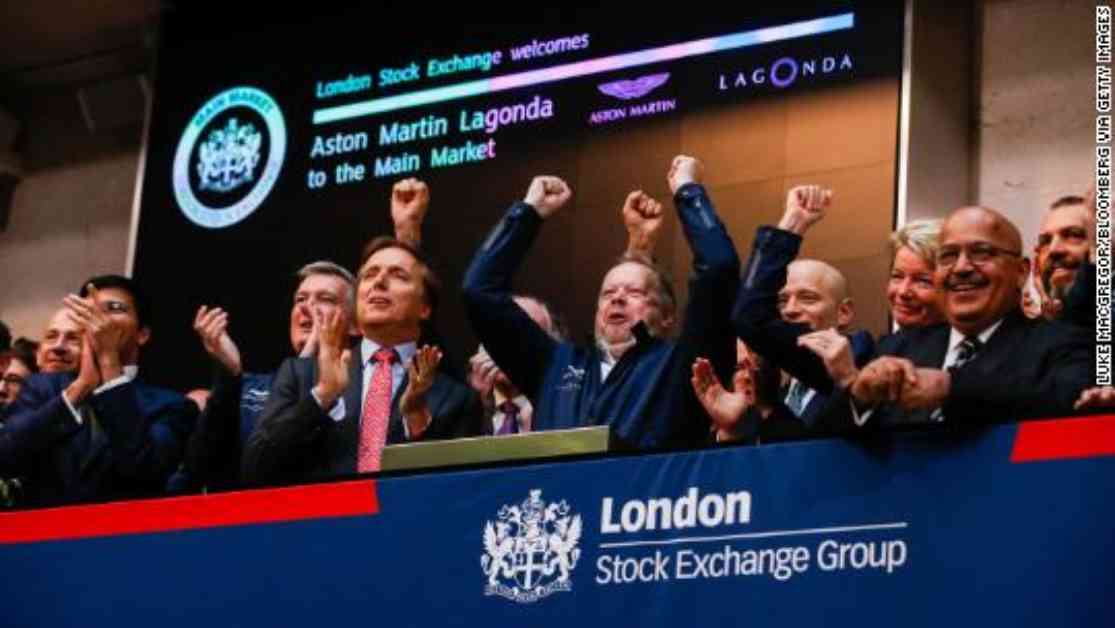Aston Martin, the renowned British luxury carmaker, made its debut on the London Stock Exchange with an initial public offering (IPO) that valued the company at over $5 billion. However, the company faced a challenging start to trading as its share price dropped by 5%. The IPO priced Aston Martin shares at £19.00 ($24.70), giving the company a valuation of £4.3 billion ($5.6 billion), which was 16% below the top end of the target range.
Investors showed skepticism about whether Aston Martin should be valued similarly to its Italian competitor, Ferrari. The company’s decision to go public raised concerns about potential challenges such as US auto tariffs and the impact of Brexit on its supply chains and markets. Despite a history of financial struggles, Aston Martin has recently reported strong financial performance, with record revenue of £876 million ($1.1 billion) in 2017 and continued growth in the first half of this year.
Analysts have pointed out several challenges that Aston Martin may face in competing with Ferrari, including a less established brand reputation, lower profit margins, and a reliance on a planned SUV model for future success. The IPO proceeds are primarily going to existing shareholders rather than investment in the company, leading some to question the company’s growth strategy and profitability potential compared to Ferrari.
Aston Martin’s current owners include Daimler, Investindustrial, and Kuwaiti investors. While the company has made efforts to leverage its high-end brand image in recent years, analysts remain cautious about its ability to match Ferrari’s profitability and success in the luxury car market. Despite these challenges, Aston Martin’s strong sales performance and revenue growth indicate a positive trajectory for the company, which will need to navigate competitive pressures and market uncertainties in the future.





















